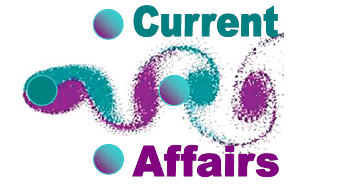Government Nod to Model of Single Card for Travel and Shopping
- The Ministry of Urban Development on September 1, 2015 has approved a model for a smart mobility card named ‘National Common Mobility Card’ which can be used across mass transit modes such as metro rail and also double up as a credit or debit card for shopping.
- The card would be ready for pan-Indian launch and use in 2016. The card will be linked to a user’s bank account and eliminate the need to carry separate cards for retail shopping and commuting in mass transportation systems.
- The model approved for India is similar to a card used in the city-state of Singapore. The model was chosen on the recommendations of a committee set-up by Naidu in 2014 to study different practices across the world.
- The card will have separate stored value for travel and for buying general merchandise. The previous UPA government had planned to bring out a similar card and even called for bids. It didn’t go through because none of the bidders could offer an inter-operable card that could be used seamlessly across all transportation systems.
SC Stayed Rajasthan High Court Verdict Declaring ‘Santhara’ Illegal
- The Supreme Court on August 31, 2015 stayed the order passed by Rajasthan High Court declaring Santhara, which is a Jain custom of embracing voluntary death, as illegal. The decision is taken by a Bench comprising Chief Justice HL Dattu and Justice Amitava Roy.
- The Rajasthan High Court, in a judgment on August 10, 2015, declared the Santhara practice, which involves voluntary fast-unto-death, illegal and an offence punishable under the Indian Penal Code (IPC).
- Santhara is a Jain custom of embracing voluntary death. It involves practitioners taking an oath to stop eating until they die of starvation. According to Jains, this is a way to purge oneself of bad karma and attain moksha.
Read More – National Current Affairs August Month 2015 Part 1.
‘Sahaj’ Initiative Launched
- The Minister of State for Petroleum and Natural Gas, Dharmendra Pradhan launched ‘Sahaj’ initiative on August 30, 2015. It denotes the online release of new LPG connections, through the portal mylpg.in to enable customers to register for new LPG connections online, as well as make on line payments for the same.
- ‘Sahaj’ initiative is launched in line with Digital India Vision envisaged by Prime Minister Narendra Modi. Oil Marketing Companies (OMCs) are the implementing agencies of this ‘Sahaj’ initiative.
- Initially, the scheme has been launched in twelve cities. They are Ahmedabad, Bhubaneswar, Bengaluru, Bhopal, Chennai, Chandigarh, Kolkata, Hyderabad, Lucknovv, Patna, Mumbai and Pune.
Housing For All
Centre Identifies 305 Cities, Towns
- Union Ministry of Housing and Urban Poverty Alleviation (HUPA) on August 30, 2015 has identified 305 cities and towns across nine states to start building houses for the poor in urban areas as per the Housing for All (Pradhan Mantri Aawas Yojana).
- The government has set the target td provide houses to two crore families belonging to the Economically Weaker Section (EWS) in urban areas by 2022. The States that are likely to gain are Chhattisgarh, Gujarat, J&K, Jharkhand, Kerala, Madhya Pradesh, Odisha, Rajasthan and Telangana.
- Moreover, six other States i.e., Andhra Pradesh, Bihar, Manipur, Mizoram, Nagaland and Uttarakhand have agreed to implement six key reforms relating to clearances and approval for housing projects to accelerate their construction.
NITI Aayog Unveiled Second Version of Energy Tool I ESS 2047
- The NITI Aayog on August 28, 2015 has launched the second version of the India Energy Security Scenarios 2047 calculator (IESS 2047), an open source Web-based tooT. which can be used to explore different energy scenarios.
- The tool which aims to scan a range of potential future energy scenarios for India for diverse energy demand and supply sectors leading up to 2047 was unveiled by NITI Aayog Vice-Chairman Arvind Panagariya in the presence of a select gathering at a function at the Federation House in New Delhi.
- The model allows users to interactively make energy choices and explore a range of outcomes for the country i.e., from carbon dioxide emissions and import dependence to land use. The UK Department for Energy and Climate Change (DECC) is the initiative partner with NITI Aayog in this project.
We hope you like National Current Affairs September 2015 Part 1, give your feedback in comments and keep visiting Current Affairs.




